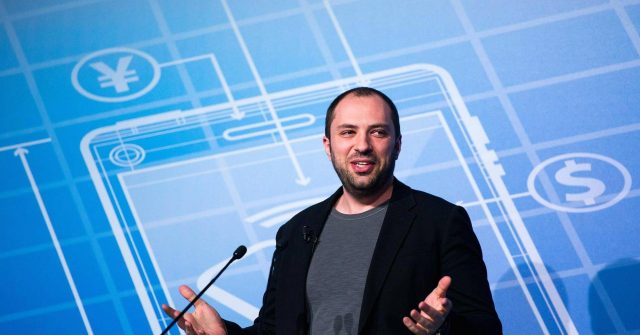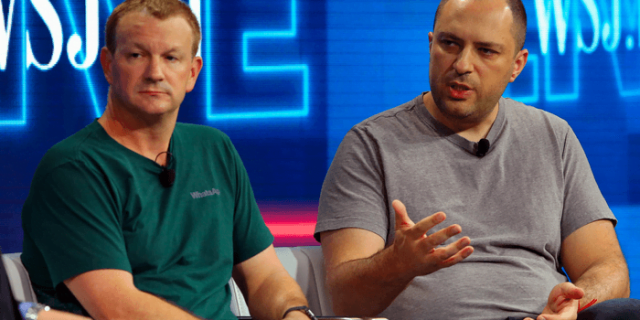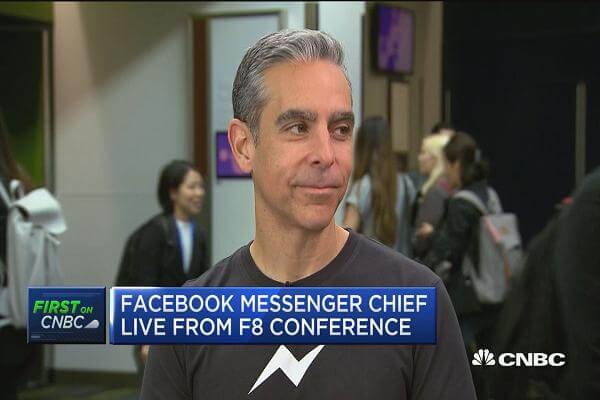Jan Koum, one of the co-founders of WhatsApp has finally left his position on 30th April 2018 amidst rumours of not agreeing with the upcoming changes that Facebook was planning for the app.
The news had been circulating for some time, but was officially revealed last Monday only when Jan Koum posted his farewell note on Facebook saying:
‘It’s been almost a decade since Brian and I started WhatsApp, and it’s been an amazing journey with some of the best people. But it is time for me to move on. I’ve been blessed to work with such an incredibly small team and see how a crazy amount of focus can produce an app used by so many people all over the world.
I’m leaving at a time when people are using WhatsApp in more ways than I could have imagined. The team is stronger than ever and it’ll continue to do amazing things. I’m taking some time off to do things I enjoy outside of technology, such as collecting rare air-cooled Porsches, working on my cars and playing ultimate frisbee. And I’ll still be cheering WhatsApp on – just from the outside. Thanks to everyone who has made this journey possible.’
As per sources, it is also believed that Koum might be leaving his position as one of the board of directors at Facebook.
Koum and Brian Acton the other co-founder of WhatsApp had earlier sold WhatsApp to Facebook in 2014 for a lump sum of over $19 billion.
Acton had already left Facebook back in September to start a foundation called ‘Signal Foundation’.
Koum’s leaving though, comes on the heels of several changes that Facebook seems to be making to WhatsApp.
Here are some of them:
1. Weakening of Encryption
The privacy and user data had always been 2 points of contention between the WhatsApp founders and Facebook with the latter always pushing for easier access to the over 1 billion users of the app.
When Facebook first acquired WhatsApp, Koum did address the concerns of users by saying that, “You don’t have to give us your name and we don’t ask for your email address. We don’t know your birthday. We don’t know your home address. We don’t know where you work. We don’t know your likes, what you search for on the internet or collect your GPS location. None of that data has ever been collected and stored by WhatsApp, and we really have no plans to change that.”
As much as the founders Acton and Koum were against the advertising model, they had to eventually bend to Facebook and allow them access to the contact numbers of its users along with also giving them analytical data like what kind of device and operating system the user has.
However, it was the 2016 introduced end-to-end encryption that was a big thorn in Facebook’s side since it restricted them from providing WhatsApp data to businesses and more.
According to certain sources, Facebook wanted businesses to have easier access to users’ data which they could then use to target appropriate consumer base. However, as per the founder, this would mean weakening the encryption system.
And their plans to add advertisements into the app is just one of the ways Facebook could be planning to dilute the encryption system of WhatsApp.
Read More: Facebook Dating Looks Beyond Hookups To Build Long Term Relationships But Can They Be Trusted?
2. Bringing In Advertisers
The thing is that right now, with the current encryption in place, no one besides the chosen recipients of a particular message can see it.
Not even the founders or government can see the contents of the messages that is how strong the encryption is.
But apparently, that might have to decrease a bit if what Facebook has in mind is to happen which is ultimately opening WhatsApp to advertising.
That is said to be one of the reasons why Koum left in the first place wherein Facebook wanted to use the user data for commercial purposes.
And it seems to be happening already if we go by what Facebook Messenger head David Marcus has to say. On Tuesday, Marcus told CNBC that, “As far as advertising is concerned, we’re definitely getting WhatsApp more open.”
“We’re now going to have the ability to enable larger companies, not only small businesses, to integrate a new API [application programming interface] to send and receive messages with people on the Whatsapp platform,” he further added.
Barclays analysts and more have predicted that once Koum leaves that is when the ads will be coming in and that is exactly what seems to be happening.
It seems that Facebook is turning WhatsApp from a safe messaging app to just a general messaging app while taking away the security measures that its founders were so adamant on.
Image Credits: Google Images
Sources: The Washington Post, The Guardian, CNBC
Other Recommendations:
http://edtimes.in/2018/05/heres-why-you-need-to-change-your-twitter-password-right-away/






































